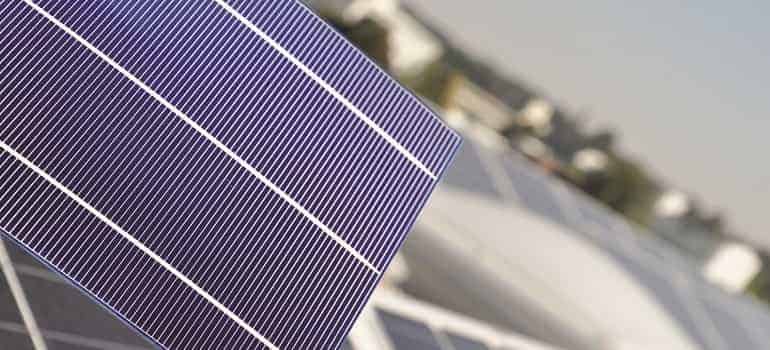
Scientists have developed floating solar cells that can harness the Sun’s energy to produce hydrogen fuel from water.
Hydrogen is a clean fuel that is currently used to propel rockets in NASA’s space programme and is widely expected to play an important role in a sustainable energy future.
The vast majority of today’s hydrogen is produced from natural gas through a process called steam methane reforming that simultaneously releases carbon dioxide (CO2), but water electrolysis using electricity from solar photovoltaic (PV) offers a promising route to produce hydrogen without any associated CO2 emissions.
Researchers from Columbia University in the US have developed a novel photovoltaic-powered electrolysis device that can operate as a stand-alone platform that floats on open water.
The floating device can be thought of as a “solar fuels rig” that bears some resemblance to deep-sea oil rigs, except that it would produce hydrogen fuel from sunlight and water instead of extracting petroleum from beneath the sea floor, researchers said.
State-of-the-art electrolyzers use expensive membranes to maintain separation of these two gases.
The new device relies instead on a novel electrode configuration that allows the gases to be separated and collected using the buoyancy of bubbles in water.
The design enables efficient operation with high product purity and without actively pumping the electrolyte.
Based on the concept of buoyancy-induced separation, the simple electrolyzer architecture produces H2 with purity as high as 99 per cent.
ALSO READ: NREL Develops Switchable Solar Window
“The simplicity of our PV-electrolyzer architecture – without a membrane or pumps – makes our design particularly attractive for its application to seawater electrolysis, thanks to its potential for low cost and higher durability compared to current devices that contain membranes,” said Daniel Esposito, assistant professor of chemical engineering at Columbia University.
ALSO READ: Watching atoms move in hybrid perovskite crystals reveals clues to improving solar cells
“We believe that our prototype is the first demonstration of a practical membraneless floating PV-electrolyzer system, and could inspire large-scale ‘solar fuels rigs’ that could generate large quantities of hydrogen fuel from abundant sunlight and seawater without taking up any space on land or competing with fresh water for agricultural uses,” Esposito said.

